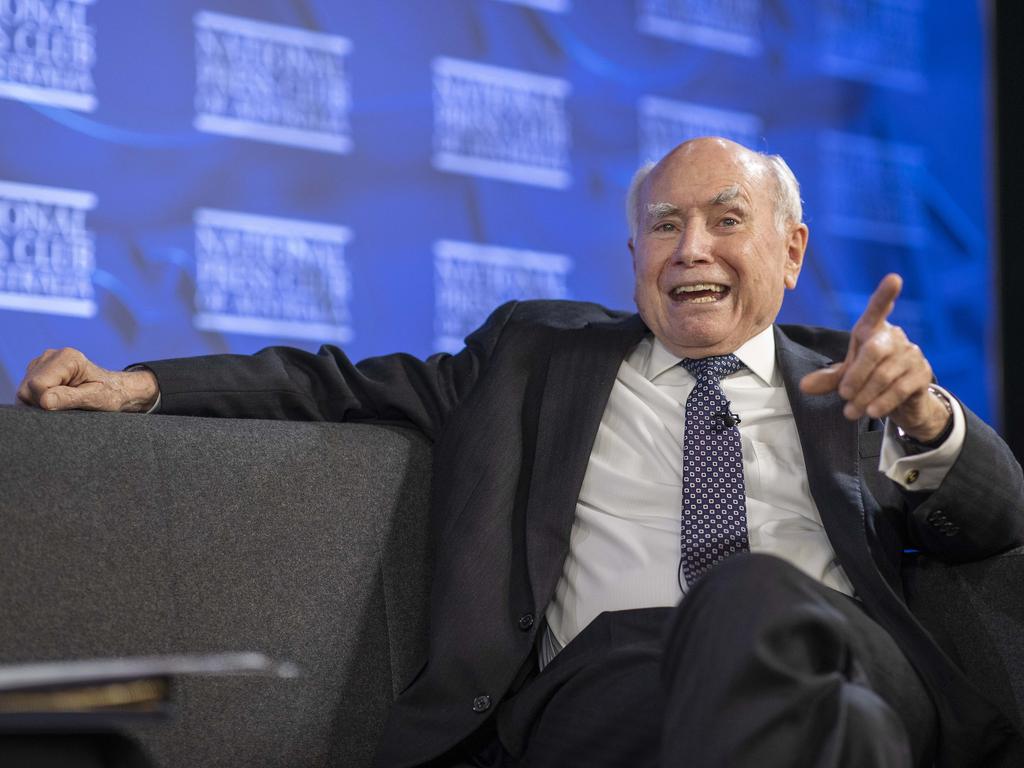Anti-intellectual bullying and coercion do not help reconciliation
It’s troubling when our most esteemed QCs feel unable to offer their expertise to publicly discuss concerns about the transfer of power to a race-based voice.

In some respects, it is a symbol of Australian intellectual life in the 21st century where so many groups comprising very smart people are either derelict about seeking the details of an idea that is claimed to be a reform, or they are hiding those details from us.
It has been dismal to watch so many successful people – lawyers, academics, business men and women, politicians and hordes in the media – suspend intellectual faculties that they would normally use to full effect in their daily lives.
Business leaders have signed on to a constitutional change with no regard for their duties to shareholders. Few politicians, and even lawyers, have sought expert legal advice about the constitutional implications of the transfer of power from parliament and executive government to the voice. Whole swathes of the media joined the bandwagon to the point where the ABC will routinely reflect a chorus line of “yes, yes, yes” chanting to the voice, akin to that scene in When Harry Met Sally.
By joining the movement early, not asking questions then, many of these people are now so invested they refuse to think rationally about important principles being undermined by the voice and the very real dangers of this new body.
Their desperation to attach their name to a moment in history, to be mentioned in dispatches, even a footnote, without considering the future implications of the voice is sign of how anti-intellectual this public debate has become.
This week, I sent questions to Attorney-General Mark Dreyfus and Anthony Albanese asking whether they sought and received legal advice about the constitutional implications arising from a race-based voice.
We are, after all, being asked to alter the country’s Constitution, a rule book about how we govern ourselves, who in our system of government has the power to determine critical policy. Answers to that simple question were not forthcoming.
We are being asked to vote yes on the basis of “she’ll be right, mate”. The Yes case is not just shallow. It is confused, to use a neutral term. For example, on these pages two legal academics, Greg Craven and George Williams, have advocated for the voice on the basis that it is a “modest” change that achieves large reconciliation benefits in return for minimal change to our democratic procedures. The Prime Minister has said it is simply a matter of good manners.
However, while our academic friends mean well, it reeks of arrogance or delusion to suggest the High Court will not have a major role in shaping the voice, given the proposed powers in the Constitution. I’d rather take the word of Australia’s leading silks who actually argue constitutional cases before the High Court. Though somewhat insultingly dismissed by advocates as fearmongers and Chicken Littles, these careful, practical silks have painstakingly laid out for me, and thus for readers, the reasons the proposed amendment will give the voice startling power, leverage and influence.
Moreover, academic views about the modesty of the proposed change, are not even shared by their more worldly fellow advocates.
For example, on Tuesday, the co-chair of Australians for Indigenous Constitutional Recognition Danny Gilbert was quoted as saying the “whole point” of a voice to parliament would be for it to be influential and politically powerful. “And why shouldn’t it be so?” Thank you, Mr Gilbert, for clarifying that much.
Even Malcolm Turnbull, though he now supports a race-based voice in the Constitution, recognises this will be a major change to our current constitutional arrangements.
“I have reservations about it, I have misgivings and it will be an enormous change to the way our parliamentary system works … I still believe it will make a very big change. It’s not a symbolic change, it is not like the republic, which was largely symbolic. This is conferring real power, real political power, to the voice,” Turnbull told ABC TV’s 7.30 this week.
Indeed, there is more than a little arrogance in demanding that we bet the stability of our current constitutional arrangements on the pious hopes of academics who trade in insults and quips when Turnbull and a bevy of silks are telling us the Albanese Amendment is a very major change.
The voice is, at heart, a transfer of power. And power isn’t created out of thin air. By putting it in the Constitution in the format of the three sentences that comprise the Albanese Amendment, the power comes from somewhere – namely it shifts power from parliament and executive government to a race-based constitutionally entrenched body.
And the timing of that power shift is critical: it is meant to happen before the next two parts of the Uluru Statement from the Heart, the truth telling and treaty parts, are pursued.
Admittedly the poor quality of the debate is not helped by the public silence among legal experts who understand the dangers that could very likely arise from entrenching the voice in the Constitution. Unlike academics, these senior lawyers, most of them QCs, work in the real world, arguing real cases before real courts. Their silence points to another key feature disfiguring this debate, namely the attempt to bully, coerce and silence opponents.
Put simply, the public silence of these lawyers and QCs is a case of self-protection. They are not willing to become political cannon fodder over this referendum proposal. It is a damning indictment, not of them, but of our public discourse that constitutional lawyers whose expertise was gained from actual cases in the High Court, rather than at university, are not willing to publicly raise their concerns or offer their advice for fear of having their careers damaged by the zeitgeist. It means we only hear from lawyers who are part of that zeitgeist.
One QC told me if any lawyer raised legal concerns voice activists “would go to town on us. There’ll be an outcry for weeks. You just get hammered.”
“Law firms would say: ‘We can’t brief him because he’s been branded as an extremist.’ You would have judges treat you as an extremist. You would be marginalised and ostracised on your own (barristers’) floor and within the profession,” says one QC.
“When a client Googles a barrister and if this stuff comes up, they will say: ‘No, no, he’s too hot. We want Mr. Nice.’ They don’t want to send in someone seen as public enemy No.1,” he adds.
It will also harm chances of promotion to the bench: “You will even be isolated, discredited within the coalition. Because if they’re talking about appointing somebody, they don’t want someone who’s a lightning rod. They’ll say, ‘No, not him. We just don’t want to have that row at the moment.’ ”
When the ABC’s Sarah Ferguson claims that those voting Yes are “on the right side of history”, the tactics are clear. It is to malign those who have concerns about the voice, how it will work in practice.
It is troubling when our most esteemed QCs feel unable to offer their expertise to publicly discuss concerns about the transfer of power from the parliament and the executive to a race-based voice and about the role of the High Court in this transfer of power.
But you can’t blame them. When Craven damned them as Chicken Littles and terrorising fearmongers, it proved that they were right to stay silent.
However, this points to a hollowed-out and debased public debate, if we can even use that word, given that emotion, slogans, silly quips and insults have easily outnumbered reasoned analysis of the Yes case. We have become a society that celebrates our own dumbing down.
If the voice turns out to be a rolled-gold disaster, and a permanently entrenched one, we will all ask ourselves: how did we let this happen?
If we were carried away with the emotion and the goodwill – the “vibe of the thing” – and failed to insist on the details, we will all deserve the contempt of our children.
Moreover, a major constitutional change pushed through with the help of bullying, coercion and silencing will be no basis for reconciliation. It will, sadly, be the opposite.







The voice remains a shallow, confused debate. Sadly, that appears to be by design.